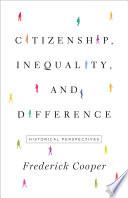
Corporate Citizenship
Corporate citizenship is a prominent international issue as contemporary corporations are no longer expected to perform financially, but are also expected to have an ethical relationship of responsibility between the corporate itself and the society in which it operates and performs it business activities. Provides an up-to-date theoretical content pertaining to corporate citizenship, providing local and global examples and case studies.
- ISBN 13 : 9780190407087
- ISBN 10 : 0190407085
- Judul : Corporate Citizenship
- Pengarang : Alfred Bimha, Johanna Badenhorst-Weiss, Kudakwashe Chodokufa, Tracey Cohen, Lynette Cronje, Neil Eccles, Anton Grobler, Catherine Le Roux, Johan Strydom, Iréze Van Wyk, Sharon Rudansky-Kloppers, Jacobus Young, Johanna Badenhorst-Weiss, Kudakwashe Chodokufa, Tracey Cohen, Lynette Cronje, Neil Eccles, Anton Grobler, Catherine Le Roux, Johan Strydom, Iréze Van Wyk, Sharon Rudansky-Kloppers, Jacobus Young, Johanna Badenhorst-Weiss, Kudakwashe Chodokufa, Tracey Cohen, Lynette Cronje, Neil Eccles, Anton Grobler, Catherine Le Roux, Johan Strydom, Iréze Van Wyk, Sharon Rudansky-Kloppers, Jacobus Young, Johanna Badenhorst-Weiss, Kudakwashe Chodokufa, Tracey Cohen, Lynette Cronje, Neil Eccles, Anton Grobler, Catherine Le Roux, Johan Strydom, Iréze Van Wyk, Sharon Rudansky-Kloppers, Jacobus Young, Johanna Badenhorst-Weiss, Kudakwashe Chodokufa, Tracey Cohen, Lynette Cronje, Neil Eccles, Anton Grobler, Catherine Le Roux, Johan Strydom, Iréze Van Wyk, Sharon Rudansky-Kloppers, Jacobus Young, Johanna Badenhorst-Weiss, Kudakwashe Chodokufa, Tracey Cohen, Lynette Cronje, Neil Eccles, Anton Grobler, Catherine Le Roux, Johan Strydom, Iréze Van Wyk, Sharon Rudansky-Kloppers, Jacobus Young, Johanna Badenhorst-Weiss, Kudakwashe Chodokufa, Tracey Cohen, Lynette Cronje, Neil Eccles, Anton Grobler, Catherine Le Roux, Johan Strydom, Iréze Van Wyk, Sharon Rudansky-Kloppers, Jacobus Young, Johanna Badenhorst-Weiss, Kudakwashe Chodokufa, Tracey Cohen, Lynette Cronje, Neil Eccles, Anton Grobler, Catherine Le Roux, Johan Strydom, Iréze Van Wyk, Sharon Rudansky-Kloppers, Jacobus Young,
- Kategori : Business ethics
- Penerbit : Oxford University Press, USA
- Bahasa : en
- Tahun : 2017
- Halaman : 404
- Google Book : http://books.google.co.id/books?id=7AOlswEACAAJ&dq=intitle:Citizenship&hl=&source=gbs_api
-
Ketersediaan :
Corporate citizenship is a prominent international issue as contemporary corporations are no longer expected to perform financially, but are also expected to have an ethical relationship of responsibility between the corporate itself and ...









